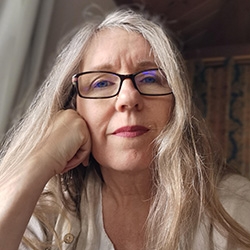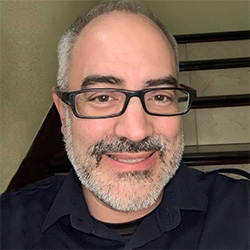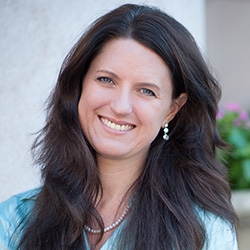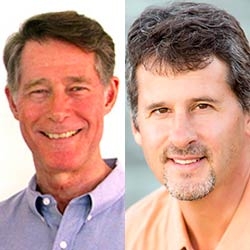

Search Results: differences
-
Bring nonviolence to life through facilitation, integrate love and courage in every group process.
-
Experience a deep process of self-connection and meaningful self-discovery.
-
- Focus on living from the inside out
- Bring a field of inner kindness to your inner distress
- Attend to your inner experience with compassion
- Cultivate an inner spaciousness of freedom
-
Uncover self-sabotage and release unconscious contracts through empathy and neuroscience.
-
Here are five practical ideas for creating simple agreements with a group when conflict arises.
-
When people have a hard time communicating in a loving way (e.g. criticize, blame, shut down, act out, etc.) it can be very challenging. Using empathy-based communication we can connect to the underlying feelings and needs behind their behavior. By recognizing when to do what (empathizing, stepping back, etc), we can respond with compassion and clarity rather than reactivity.
-
Anger and resentment can signal unmet needs. Through mourning those needs and practicing self-empathy, we may let go of blame, embrace reality, and reclaim responsibility for fulfilling our own needs. This process may lead to emotional transformation through conscious reflection, and a new outlook.
-
Yoram Mosenzon explores the core NVC principle that others do not cause our feelings—our interpretations and unmet needs do.
-
I’m Jeff Brown, Executive Director of the Center for Nonviolent Communication. Mary asked me to be a guest writer for this newsletter, and it’s allowed me to look deeply at the role NVC plays in my life, personally and professionally— especially in running a successful NVC organization.
As the director of an NGO, I am grateful to have learned Nonviolent Communication. I utilize the principles constantly, and I’m not sure how I would survive without them.
-
Dear friends,
Every so often, gratitude rolls over and through me like a tidal wave, leaving me with awe in its wake. I think of my grandson, River. I think of my wife, Kim. I think of how blessed we are to have the family, friends, and community we have. The other person I’m feeling immense gratitude for today is Marshall Rosenberg. It was his birthday last month, and each year, I get re-immersed in this heartwarming, almost overwhelming, sense of gratitude for this incredible person who changed my life with his vision, heart, and clarity. Let me tell you how Marshall changed my life.
-
It seems death cafes are everywhere these days. But how changed are we by the conversations we're now having? Not everyone is open to talking about death. It may well be that someone in your life is nearing the end of their days and their refusal to talk about it may be confusing and disheartening. How do you get them to speak when they don't want to? In this session, we will explore different approaches to navigating this tricky terrain.
-
In Nonviolent Communication "power over" refers to the use of power to dominate or control others. It is a form of violence or force, whether physical, emotional, psychological or otherwise. This learning tool has six lists, each containing different types of power over strategies: physical, sexual, intimidation, economic, emotional, isolation.
-
CNVC Certified Trainer Shantigarbha Warren offers a report of his recent NVC training trip to Israel/Palestine, India and Sri Lanka and clarifies how NVC can support social change in three very different contexts. Included is an exercise, based on Gandhi’s teaching.
-
Have you ever used the phrase "it was just a miscommunication."? We're often good at identifying when communication breaks down but not so good at finding out what went wrong and how we can improve. In this NVC Life Hack, we take a look at different types of communication requests and how they play out in a role play.
-
Marriage can be seen as a limit on freedom. Ideas of compromise collude with this view. Instead, notice when your "yes" to your partner is laden with obligation, duty, guilt, fear, or an attempt to win love or approval, and how it's not a truly free "yes". True freedom is different from compulsion, and doesn't conflict with other needs. When have you experienced true freedom? What conditions support your access to freedom?
-
The purpose of setting boundaries is to prevent harm to yourself and others. In this video, Yvette Erasmus describes how and why exquisite self-care requires exquisite boundaries.
-
The human needs that we all share are the foundation of the Nonviolent Communication (NVC) process because it is in connecting to needs that we find inner freedom, empowerment and compassion.
-
When you have intrusive thoughts about yourself and feel ‘crummy,’ Ike recommends using the Chooser / Educator map as a guide to lead you out of the primitive part of your brain and back to your prefrontal cortex. Both the Chooser and the Educator want to contribute to your well being, but in different ways. This map facilitates having a positive conversation with them.
-
Telling yourself to be a certain way or have more of a certain quality (like courage), is a set-up for self-criticism and possibly freezing or avoiding. Instead, access effective action by asking yourself questions like: "If I could be or have that, what actions would be different inside or out?" "If I could be or have that, what needs would be met and knowing those are the needs, what could I do or ask for that would meet those needs?"
-
Little negative impacts can become big when left unattended. Watch for things like using a sharp tone, choosing not to share something, going along with something when you don’t really want to, trying to convince your partner, impulsively turning away, shrinking, losing access to parts of yourself, hiding, daydreaming about a different life, and judgmental thoughts. Instead, shift the dynamic: take responsibility, provide empathy, and commit to change.

Quick Links
Subscription Preferences
Stay In Touch!
Looking for ways to keep up with NVC Academy news, get special offers, free resources, or words of inspiration? Here are five ways to stay engaged:



















